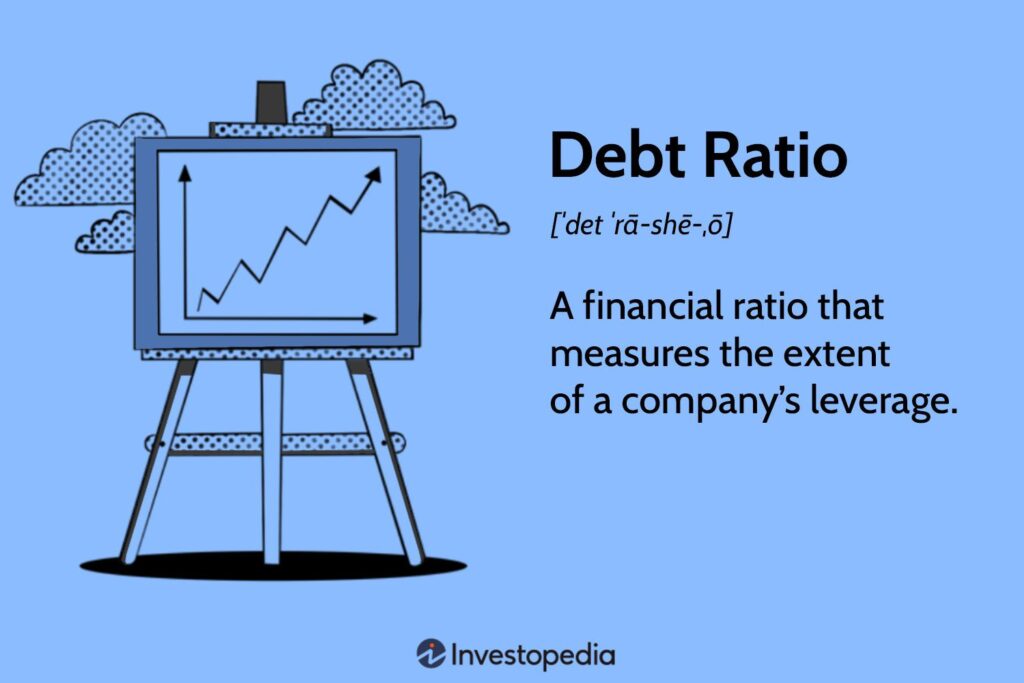Retirement Planning
Welcome to the exciting world of retirement planning! It’s never too early – or too late – to start thinking about your future and how you want to spend your golden years. Whether you’re just beginning your journey or are already well on your way, this blog post is here to guide you through the top banking and finance strategies for a secure and fulfilling retirement.
Retirement planning is not just about saving money; it’s a comprehensive approach that involves careful consideration of various financial aspects. From understanding how banking and finance play a pivotal role in securing your future to exploring expert tips for saving, investing wisely, managing debt, and even estate planning – we’ve got you covered!
So sit back, relax, grab a cup of coffee (or tea!), and let’s dive into some invaluable strategies that will set you up for financial success during retirement!
The Role of Banking and Finance in Retirement Planning
Retirement planning is a crucial aspect of our financial journey. It’s never too early to start thinking about how we want to spend our golden years and what steps we need to take in order to achieve that dream retirement. One important factor in retirement planning is the role of banking and finance.
Banking institutions offer various tools and products specifically tailored for retirement planning. From savings accounts designed to grow your nest egg over time, to individual retirement accounts (IRAs) that provide tax advantages, these financial services can be instrumental in helping you reach your retirement goals.
One common strategy for retirement savings is utilizing employer-sponsored 401(k) plans. These plans allow employees to contribute a portion of their salary on a pre-tax basis, meaning the money grows tax-deferred until withdrawal during retirement. Some employers even offer matching contributions, which are essentially free money added to your account.
Investment options also play a significant role in building wealth for retirement. Banks often have investment advisors who can help you create a diversified portfolio based on your risk tolerance and long-term goals. Whether it’s stocks, bonds, or mutual funds, investing wisely can potentially yield higher returns over time compared to traditional savings methods alone.
In addition to saving and investing, banking institutions also provide valuable resources for managing debt during retirement. It’s important not only to focus on growing your assets but also ensuring that you’re not burdened by excessive debt when you retire. Banks may offer solutions such as consolidation loans or credit card balance transfers with lower interest rates.
Estate planning is another critical aspect of preparing for retirement. Banking institutions frequently offer services like trust accounts and will preparation assistance that can help ensure smooth transition of assets after passing away.
In conclusion (without using those words), banking and finance play an integral role in every stage of the retirement planning process – from saving diligently throughout one’s career to investing strategically and managing debt effectively during the golden years. By leveraging the tools and resources provided by banking institutions, individuals can enhance their financial stability and
Saving for Retirement: Tips and Tricks from Financial Experts
When it comes to retirement planning, one of the most crucial aspects is saving. And who better to turn to for advice than financial experts? These professionals have years of experience and knowledge that can help you make the most out of your savings. So, let’s dive into some tried-and-true tips and tricks from these experts!
1. Start Early: The earlier you start saving for retirement, the better off you’ll be in the long run. Even if it’s just a small amount each month, every little bit adds up over time.
2. Set Clear Goals: Determine how much money you will need during retirement and set clear goals accordingly. This will give you something tangible to work towards.
3. Automate Your Savings: Take advantage of automation tools offered by banks or investment platforms. By setting up automatic transfers, a portion of your income goes directly into your retirement savings without any effort on your part.
4. Maximize Retirement Accounts: Contribute as much as possible to tax-advantaged accounts like 401(k)s or IRAs. These accounts offer significant tax benefits and can help grow your savings faster.
5. Diversify Your Investments: Spread out your investments across different asset classes such as stocks, bonds, real estate, or mutual funds to reduce risk and maximize potential returns.
6. Prioritize Debt Repayment: Before focusing solely on retirement savings, pay down high-interest debts like credit cards or personal loans first. This will free up more money that can be directed towards building your nest egg.
7. Cut Back on Expenses: Reevaluate your budget and find ways to trim unnecessary expenses so that you can allocate more funds towards retirement savings.
Remember that everyone’s financial situation is unique; therefore it’s important to consult with a financial advisor tailored specifically to meet all your needs! Keep these tips in mind while crafting a personalized strategy for your retirement savings.
Investing in Retirement: Long-Term Strategies for Financial Stability
Retirement is a time when we should be able to relax and enjoy the fruits of our labor. However, it’s essential to have a solid financial plan in place to ensure stability throughout our golden years. One crucial aspect of retirement planning is investing wisely.
When it comes to investing for retirement, taking a long-term approach is key. While short-term gains may seem tempting, they can also come with significant risks. Instead, focus on building a diversified portfolio that will provide steady growth over time.
Start by considering your risk tolerance and investment goals. This will help you determine the right mix of stocks, bonds, and other assets for your portfolio. Diversification across different asset classes can help mitigate risk while still offering potential returns.
Another important factor to consider is inflation. Over time, prices tend to rise, which erodes the purchasing power of your savings. To combat this effect, allocate a portion of your investments towards assets that are likely to keep pace with or outpace inflation.
It’s also wise to regularly review and rebalance your investment portfolio as needed. As you near retirement age or experience life changes such as marriage or having children/grandchildren; adjust your investments accordingly.
Seek professional advice from financial advisors who specialize in retirement planning. They can offer guidance tailored specifically to your needs and goals.
Remember that investing for retirement requires patience and discipline but can lead to financial stability in the long run.
Managing Debt During Retirement: How to Stay Afloat
Retirement is a time many people look forward to, with dreams of relaxation and enjoying the fruits of their labor. However, managing debt during retirement can be a challenging task that requires careful planning and budgeting.
One key strategy for staying afloat financially in retirement is to prioritize paying off high-interest debts. Start by creating a list of all your outstanding debts, including credit cards, loans, and mortgages. Focus on tackling the debts with the highest interest rates first while making minimum payments on others.
Another important aspect is reducing expenses wherever possible. Look for ways to cut back on unnecessary spending without sacrificing your quality of life. This could mean downsizing your home or finding more affordable healthcare options.
Consider consolidating your debt into one manageable payment through methods like refinancing or using a personal loan with lower interest rates. This can help simplify your financial situation and make it easier to stay on top of payments.
Additionally, explore opportunities to generate extra income during retirement. You might consider part-time work or turning hobbies into profitable ventures. Every little bit helps when it comes to managing debt effectively.
Seek professional advice from financial advisors who specialize in retirement planning. They can provide guidance tailored specifically to your unique circumstances and goals.
By following these strategies for managing debt during retirement, you can ensure a smoother transition into this new phase of life without being burdened by excessive financial obligations.
Estate Planning and Its Importance in Retirement
As we approach the conclusion of our discussion on retirement planning, it is crucial to emphasize the significance of estate planning. While many people tend to overlook this aspect, proper estate planning can play a vital role in ensuring financial stability not only during your retirement years but also for future generations.
Estate planning involves making decisions about how you want your assets to be distributed after your passing. It includes creating a will, establishing trusts, designating beneficiaries for retirement accounts and life insurance policies, as well as appointing someone to make healthcare and financial decisions on your behalf if you become incapacitated.
By engaging in effective estate planning strategies, you can:
1. Protect Your Loved Ones: Estate planning allows you to provide for your loved ones by securing their financial future. It ensures that your assets are distributed according to your wishes and helps minimize potential conflicts among family members.
2. Minimize Taxes: Through careful estate planning, you can take advantage of various tax-saving strategies that may reduce or eliminate taxes imposed on the transfer of wealth. This enables more of your hard-earned money to benefit those who matter most.
3. Maintain Control: By having a comprehensive estate plan in place, you retain control over important decisions regarding asset distribution and healthcare choices even when you are no longer able to make them yourself.
4 . Avoid Probate: Properly structured estate plans can help avoid probate – the legal process through which a deceased person’s assets are distributed – which can be time-consuming, expensive, and public. Avoiding probate allows for quicker distribution of assets while maintaining privacy.
5 . Protect Assets from Long-Term Care Costs: Estate planning techniques such as setting up trusts or utilizing Medicaid eligibility rules may help protect certain assets from being depleted due to long-term care expenses later in life.



